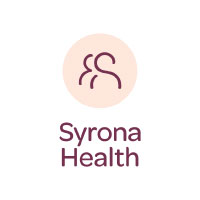How to support the gynaecological health of senior leaders
For women or anyone with a uterus, health issues such as menopause and gynaecological cancers have a huge impact on all aspects of life, from personal relationships to work. As an employer, it’s important to ensure that these areas are not neglected for the senior leaders and most experienced employees in your company.
Menopause support
Why should you, as an employer, incorporate menopause support into your employee benefits? When it comes to menopause, there is an astounding lack of information and support for those going through it. Menopause is a natural health transition for anyone with a uterus and, with people living and working longer, it affects a significant portion of senior leadership teams and your most experienced workers. Nearly 60% of women say that menopause symptoms negatively impact their work, according to the Chartered Institute of Personnel and Development (CIPD). Around 30% of women will take time off of work due to symptoms, with a smaller amount quitting their jobs as a result.
When a health issue impacts such a significant part of the workforce, it becomes an employer’s duty to act, both for the wellbeing of their employees and to bolster job retention. The CIPD recently published guidance for employers when it comes to managing menopause at work. This includes offering flexible work times to accommodate disrupted sleeping patterns, providing a desk fan for hot flushes, and allowing regular breaks. Yet the full breadth of potential menopause support is much wider, going beyond office accommodations.
Syrona offers access to CBT therapists, hormone replacement therapyprescriptions, nutrition advice that targets symptoms and pelvic physiotherapy exercises you can do at home as part of its menopause management benefits. These benefits are provided virtually, in the privacy of the employee’s home, yet their presence in the company sends a message to employees that menopause is nothing to be ashamed of and is something that can and should be discussed comfortably at work. In that sense, menopause benefits play a large part in breaking gynaecological health taboos.
Gynae cancers at work
In the UK, uterine, ovarian, cervical, vulval and vaginal cancers account for around 22,000 new cancer cases each year, according to Cancer Research figures.
Many employers underestimate just how far-reaching the impacts of gynae cancers are on their employee’s day-to-day lives. Cancer and chemotherapy treatments can kickstart an early menopause or cause fertility issues, as well as mental health struggles. As an employer, providing tele-health solutions through therapists, nutritionists and fertility support providers can give your employees peace of mind during a stressful time.
Benefits of gynae health support
Gynae health issues like menopause and gynaecological cancers will affect every workforce at some point, yet they are often neglected by standard employee health benefits. But as awareness of women’s, trans and non-binary health grows, highlighting these aspects in your company health plan is one way to boost your company’s reputation as one with a caring company culture and to attract talent. Apart from attracting new employees, though, shining a light on the health transitions experienced by employees in their 40s and 50s is a good way to retain your most talented, experienced staff.
Article provided by Syrona Health
Supplied by REBA Associate Member, Syrona Health
Track your symptoms & lifestyle to get expert insights with SORA, your virtual health assistant







